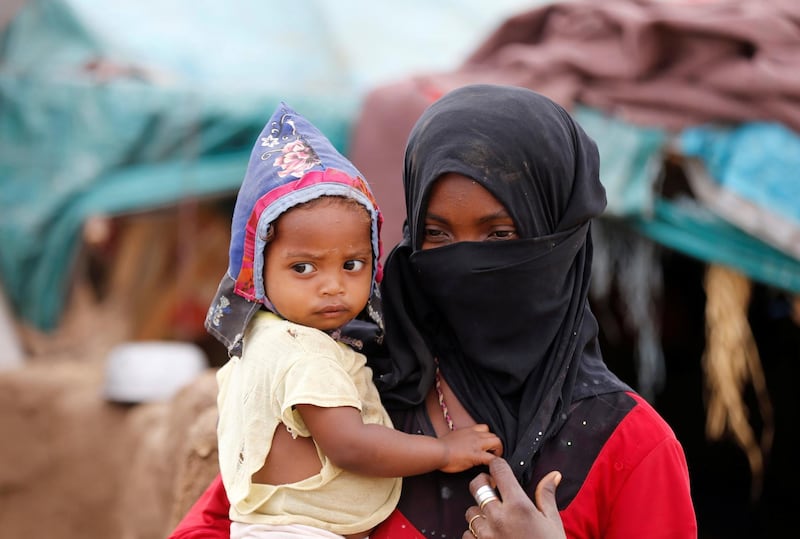The Arab Coalition airdropped weapons, ammunition and medical supplies to boost the Hajoor tribesmen in Hajjah province, north of Hodeidah, tribal sources told The National.
Members of the Hajoor tribe have been caught up in a month-long battle with the Houthis in Hajjah province that has displaced thousands of residents of the area.
“The airdrop included qualitative weapons and medical supplies to prop up our fighters who have been leading a raging battle against the Houthi militia which impose a strict siege around our areas in Hajoor from all directions,” the tribal source said.
Alongside the airdrop, the Arab Coalition launched an attack on reinforcements headed towards the front against the Hajoor tribes.
"Several air strikes targeting Houthi reinforcements towards Hajjah province killed dozens of Houthi fighters including field commanders," Abdulrahman Al Za'kari, a journalist embedded in the front, told The National.
Mr Al Za’kari said Arab Coalition jets launched other strikes targeting Houthi gatherings and vehicles in various areas within the province.
The support for the Hajoor tribes and the air strikes have foiled attempts by the rebels to take over areas controlled by the tribal fighters in the Hajjah district.
The fighting has killed and injured dozens, and displaced thousands of civilians facing severe shortages in food supplies in medical services.
“About 950 families have fled their residences in the areas of Kushar due to the fierce Houthi shelling which target their homes. Hundreds of other families were displaced to live in schools in neighbouring districts in Hajjah,” according to a resident of Kushar, a district within Hajjah.
Meanwhile, Danish general Michael Lollesgaard, who is head UN observer mission in Yemen, has urged delaying the first phase of the withdrawal process, which was expected to begin on Monday.
“Lollesgard sent a letter to the head of the government team telling him to postpone the implementation of the first phase of the forces withdrawal, without clarifying the reasons behind that,” a source said.
Colonel Wathah Al Dubaish, the Giant Brigade’s spokesman, said on Monday that the Houthi militia “completely rejects” withdrawing its forces from Hodeidah.
This partly explains why the Danish UN general requested a postponement, as he is hoping to buy time and negotiate a full rebel withdrawal, as was agreed upon by both sides during peace talks in Sweden last December.
However, Col Al Dubaish believes the attempts are futile.
“The provocative practices by the Houthis in the last couple of days indicates they are playing their repeated games. What they are doing on the ground proves they will not implement the withdrawal agreement,” Col Al Dubaish said.
Col Al Dubaish said that the Houthis resumed their aggressive shelling over sites controlled by government-backed forces. He said the rebels had not stopped digging trenches and continued using artillery and other heavy weapons in populated neighbourhoods in the port city.
“They plan for a new confrontation in the city,“ said Col Al Dubaish.






